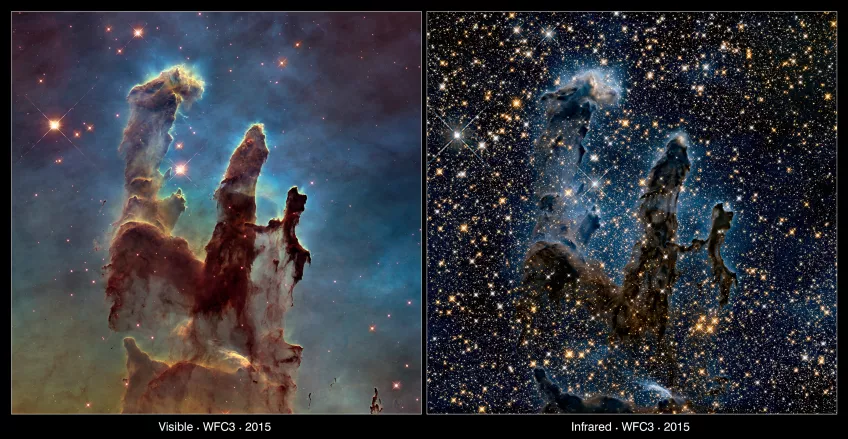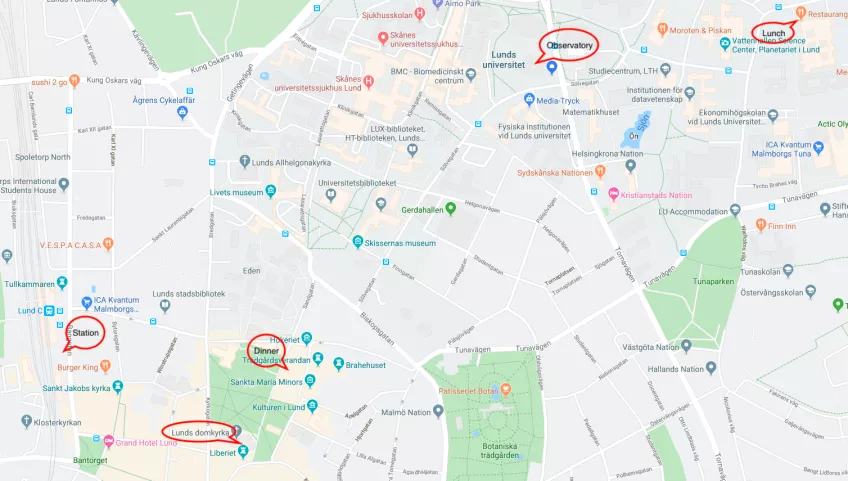The Art of Astrometry and Computation
Lund : 24-28 June 2024
Lund Observatory invites scientists to join the MW-Gaia Doctoral Network 2024 meeting:
This project is a Horizon Europe Marie Skłodowska-Curie Actions Doctoral Network funded under grant agreement no. 101072454.
The workshop is primarily aimed at PhD students to help them gain experience in using Gaia data for simulations of our Galaxy. Each afternoon is dedicated to group project work and the students will make presentations of their results on the final day. Places for active participants will be limited to 20 students. Supervisors and other scientists are also welcome to attend but will not be guaranteed support for the project work.
This workshop that will be held in Lund, Sweden, on the 24th and 28th of June 2024. This workshop will focus on Astrometry and computational problems related to Galactic dynamics using Gaia data. The workshop will consist of morning lectures and afternoon project work on the velocity dispersion of stars without the use of radial velocity data, the dynamical determination of masses and mass density and state-of-the-art N-body simulations.
Topics covered include: Newtonian gravitation and Galactic dynamics. Astrometry and the determination of stellar distances, motions and their velocity dispersion. The HR-diagram and the stellar colours, luminosities and ages of stars. The motion of the Sun and the local velocity standard. The phase space, the collision free Boltzmann equation and Jeans's equations. Applications of the Jeans equations to dynamical determination of masses and mass density. Also covered will be an overview of Galactic N-body simulations, methods and applications. We aim to bridge the gap between Gaia observations and applications to realistic simulations of our Galaxy.
The main meeting will begin at 09:00 on the 24th June and will be finished by 14:00 on the 28th June.
The students will give presentations of the research projects at the end of the meeting.
If you wish to attend the meeting please register before midnight May 1st at the very latest.
There is no charge to attend the meeting but lunch and dinner are not included.
The meeting is being held physically at Lund Observatory.
Programme:
The full programme can be found here
Participants
The participants list can be found here
Local Information
Hotels
You will need to arrange your own accommodation for the meeting. The meeting will be held in the north east of Lund at the Observatory which is a 15-20 minute walk from the centre.
We recommend the two following local hotels:
Hotel Lundia: roughly a 20 minute walk from the Observatory.
Address: Knut Den Stores Torg 2, Lund
Tel. +46 46 280 65 00
Hotel Planetstaden: about a 25 minute walk from the Observatory.
Address: Dalbyvägen 38, Lund
Phone: +46 46 280 01 00
Google maps show a larger number of hotels near the centre.
We encourage you to make your reservation at a hotel as soon as possible as they are often booked out!
Transport
Lund Central Station, or Lund C is the main railway station of Lund, Sweden. It is located on the Southern Main Line and the West Coast Line.
From the train station bus number 7 stops outside the the front (south side) of the observatory at the BMC stop.
Also from the train station tram line stops outside the back (north side) of the observatory at the LTH stop.
More information can be found here.



